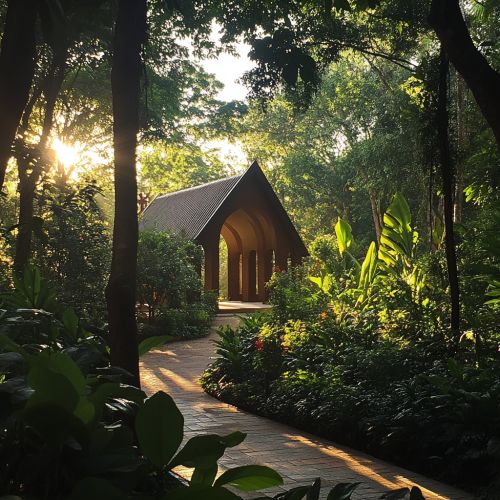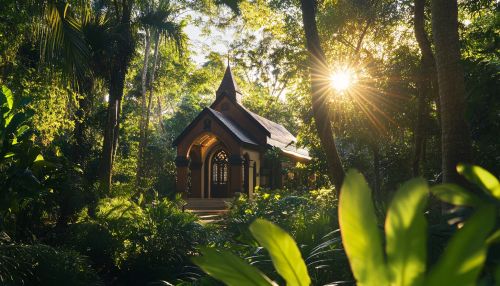Congregation of Holy Cross
History
The Congregation of Holy Cross is a Roman Catholic religious congregation founded in 1837 by Blessed Basil Moreau in Le Mans, France. Its inception was rooted in the aftermath of the French Revolution, a period that saw the devastation of the Catholic Church in France. Moreau, a diocesan priest, sought to revitalize the Church by creating a community that combined the talents of priests and brothers to serve educational and missionary needs.
The congregation was initially formed by merging the Brothers of St. Joseph, founded by Father Jacques-François Dujarié, with a group of auxiliary priests. Moreau envisioned a religious family that would be a "force for good" in the world, emphasizing education, parish missions, and foreign missions. The congregation received papal approval in 1857, solidifying its status within the Church.
Structure and Organization
The Congregation of Holy Cross is divided into three distinct societies: priests, brothers, and sisters. Each society operates under its own superior general but collaborates closely to fulfill the congregation's mission. The priests and brothers are collectively known as the "men's branch," while the sisters form the "women's branch."
The Superior General, elected by the General Chapter, leads the congregation. The General Chapter, held every six years, is the highest governing body, responsible for setting policies and electing leadership. The congregation is further divided into provinces, districts, and regions, each with its own leadership structure to manage local affairs.
Mission and Charism
The mission of the Congregation of Holy Cross is encapsulated in its motto, "Ave Crux, Spes Unica" (Hail the Cross, Our Only Hope). This reflects a commitment to bringing hope through education, parish work, and mission outreach. The congregation's charism is rooted in the belief that education is a means of transforming society and that faith should be lived out through service to others.
Holy Cross institutions are known for their emphasis on holistic education, which integrates intellectual, spiritual, and moral development. This approach is evident in the congregation's numerous educational institutions worldwide, including universities, secondary schools, and primary schools.
Educational Institutions
The Congregation of Holy Cross has established a significant presence in the field of education, with institutions spread across the globe. Notable among these is the University of Notre Dame in Indiana, USA, which is recognized for its academic excellence and commitment to Catholic values. Other prominent institutions include Stonehill College in Massachusetts and St. Edward's University in Texas.
In addition to higher education, the congregation operates numerous secondary and primary schools, particularly in the United States, Canada, and South America. These schools are characterized by their focus on academic rigor, spiritual development, and community service.
Missionary Work
Missionary work is a cornerstone of the Congregation of Holy Cross's activities. The congregation has a long history of sending missionaries to various parts of the world, including Africa, Asia, and Latin America. In these regions, Holy Cross missionaries engage in pastoral work, education, healthcare, and social services, often in challenging environments.
The congregation's missionary efforts are guided by a commitment to inculturation, which involves respecting and integrating local cultures into the practice of faith. This approach has enabled Holy Cross missionaries to build strong relationships with the communities they serve and to contribute meaningfully to their development.
Spirituality and Community Life
The spirituality of the Congregation of Holy Cross is deeply rooted in the Paschal Mystery, emphasizing the redemptive power of suffering and the hope of resurrection. Members are encouraged to find God in the ordinary events of daily life and to live out their faith through service to others.
Community life is an essential aspect of the congregation, fostering a sense of brotherhood and mutual support. Members live in community houses, where they share prayer, meals, and ministry. This communal living is seen as a source of strength and inspiration for their work.
Challenges and Adaptations
Like many religious congregations, the Congregation of Holy Cross faces challenges related to declining vocations and an aging membership. In response, the congregation has focused on vocation promotion and the formation of new members, emphasizing the relevance of its mission in the modern world.
The congregation has also adapted to changing societal needs by expanding its ministries to include social justice initiatives, environmental stewardship, and interfaith dialogue. These efforts reflect a commitment to addressing contemporary issues while remaining faithful to its foundational charism.
See Also


